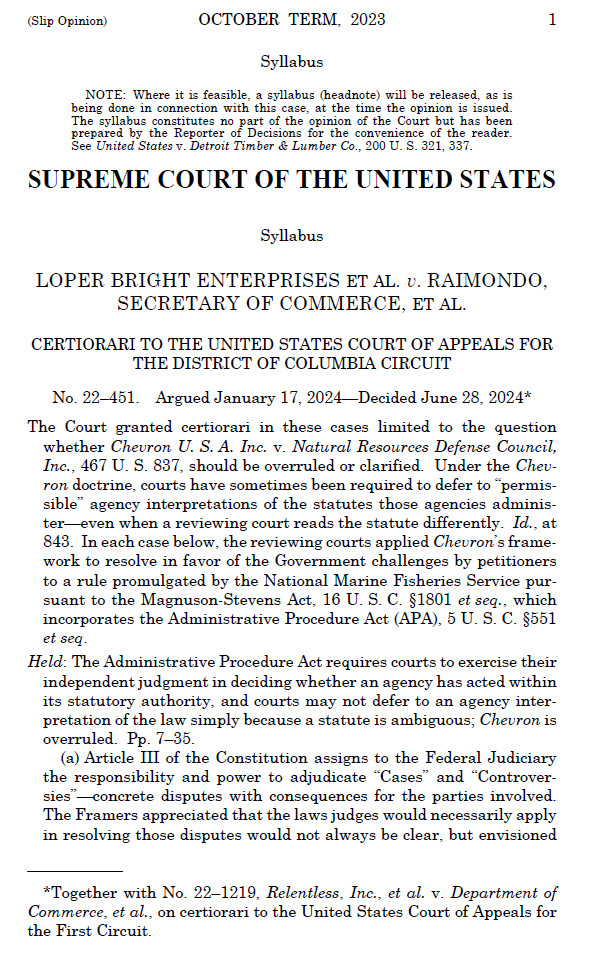Washington, DC…From the syllabus…”The Court granted certiorari in these cases limited to the question whether Chevron U. S. A. Inc. v. Natural Resources Defense Council, Inc., 467 U. S. 837, should be overruled or clarified. Under the Chevron doctrine, courts have sometimes been required to defer to “permissible” agency interpretations of the statutes those agencies administer—even when a reviewing court reads the statute differently.
Id., at 843. In each case below, the reviewing courts applied Chevron’s framework to resolve in favor of the Government challenges by petitioners to a rule promulgated by the National Marine Fisheries Service pursuant to the Magnuson-Stevens Act, 16 U. S. C. §1801 et seq., which incorporates the Administrative Procedure Act (APA), 5 U. S. C. §551 et seq.
Held: The Administrative Procedure Act requires courts to exercise their independent judgment in deciding whether an agency has acted within its statutory authority, and courts may not defer to an agency interpretation of the law simply because a statute is ambiguous; Chevron is overruled. Pp. 7–35.
(a) Article III of the Constitution assigns to the Federal Judiciary the responsibility and power to adjudicate “Cases” and “Controversies”—concrete disputes with consequences for the parties involved. The Framers appreciated that the laws judges would necessarily apply in resolving those disputes would not always be clear, but envisioned
—————— *Together with No. 22–1219, Relentless, Inc., et al. v. Department of Commerce, et al., on certiorari to the United States Court of Appeals for the First Circuit.”



